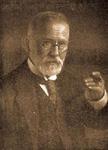Prominent American jurists in the early twentieth century immediately recognized the genius of Eugen Ehrlich. Oliver Wendell Holmes told English jurist Frederick Pollock that he considered Ehrlich’s Fundamental Principles “the best book on legal subjects by any living continental jurist.” Roscoe Pound wrote in 1915 to John Chipman Gray, “I think it is the best thing that has been written lately.” Karl Llewellyn lamented that when he found Ehrlich, he was “somewhat crushed in spirit, because [Ehrlich] had seen so much.” Llewellyn identified Ehrlich as an early realist in law.
 Following this initial burst of enthusiasm, Ehrlich was soon forgotten in America. He is rarely mentioned in legal theory circles today. Legal sociologists frequently give Ehrlich an honorific nod as a pioneer in their field, but his work is seldom engaged. After a long period of neglect, signs of a revival of interest in Ehrlich have begun to appear, especially among European theorists of legal pluralism.
Following this initial burst of enthusiasm, Ehrlich was soon forgotten in America. He is rarely mentioned in legal theory circles today. Legal sociologists frequently give Ehrlich an honorific nod as a pioneer in their field, but his work is seldom engaged. After a long period of neglect, signs of a revival of interest in Ehrlich have begun to appear, especially among European theorists of legal pluralism.This essay explains why US jurists were excited about Ehrlich, and also why he quickly faded. His famous notion of “living law” has a conceptual flaw that cannot be overcome. Legal pluralists who resort to Ehrlich for their concept of law will come up against the same flaw. Ehrlich's more enduring contribution lies not in the notion of “living law” but in his vivid account of social-legal change. Ehrlich wrote in a period of rapid economic, political, social and technological change. He describes how law responds to alterations in society — especially through the daily work of lawyers and the decisions of judges. He shows how law is alive and constantly moving. This vision is what attracted US jurists to Ehrlich then, and it is why he is relevant today, for society is again undergoing sweeping transformations.
This is worth a read.
